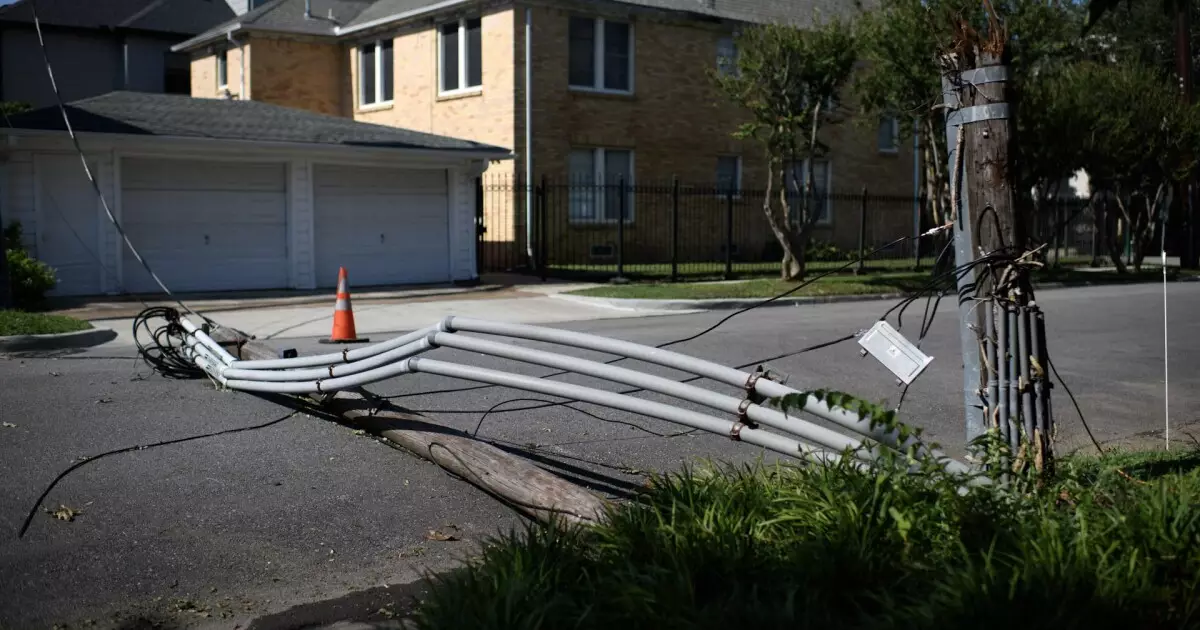Houston, as the fourth-largest city in the United States, finds itself wrestling with profound fiscal challenges exacerbated by the impacts of natural disasters. Recent developments reveal how fiscal management remains precarious, underscored by the aftermath of two significant storms that have put pressure on city budgets. The release of state funds is a temporary relief but hardly a sustainable solution as the city grapples with its deepening structural budget gap, raising questions about long-term fiscal health and resilience.
The Immediate Response to Natural Disasters
On a recent Wednesday, Texas state officials announced a $50 million allocation aimed at helping Houston cope with the aftermath of destructive storms, including a derecho windstorm in May and Hurricane Beryl in July. This timely intervention comes as Houston Mayor John Whitmire has actively engaged with state leadership, including Governor Greg Abbott, emphasizing the city’s urgent need to manage its contributions to disaster cleanup. The mayor’s acknowledgment of the city’s financial constraints illustrates a broader narrative of desperation as Houston navigates the complicated interplay between fiscal responsibility and the exigencies brought about by climate-related disasters.
FEMA’s assistance, projected at covering 75% of an estimated $210.6 million in storm-associated costs, still leaves Houston on the hook for nearly $40 million. This underlines a concerning trend where one-time grants and emergency funds are insufficient to support the city’s recurring expenses, especially when the general fund already teeters on the edge of depletion due to ongoing structural deficits.
The Looming Fiscal Gaps
Despite the immediate aid from state funds, serious fiscal issues loom large for Houston. The City Council was initially set to consider increasing property tax rates to cover deficits, but the recent financial infusion could circumvent that move, at least temporarily. Yet, Council Member Sallie Alcorn’s remarks reveal a sobering reality: Houston must eventually address its revenue generation strategies to ensure fiscal stability. The necessity of asking taxpayers to shoulder an increased burden illustrates the ongoing challenges of balancing civic services with the constraints imposed by state mandates on tax revenues.
Moreover, the city sold $612 million in general obligation judgment bonds—an indicator of how financial pressures manifest in enduring obligations. This debt will cater to prior commitments, particularly related to public safety personnel like firefighters. As costs for these commitments rise, coupled with the looming negotiations with police unions, the potential for escalating expenditures could further strain the budget.
Houston’s financial landscape is further complicated by legal entanglements surrounding property tax allocations. The ongoing lawsuit regarding how property tax revenue is allocated to the drainage fund poses a significant risk, potentially subjecting the city to budgetary shortfalls ranging from $110 million to $120 million if the appeal fails. Such vulnerabilities underscore the precariousness of Houston’s fiscal framework, where an unfavorable legal ruling could destabilize the entire budgetary structure.
Additionally, as Houston grapples with its own fiscal crises, other Texas cities are concurrently dealing with their budget realities. Cities like Dallas and Pflugerville face pressures related to pension funding and impending deficits, illustrating a statewide trend of budgetary tumult primarily instigated by inadequacies in addressing both capital management and operational expenditures.
While the infusion of state relief funds provides immediate assistance, the overarching question remains: Can Houston cultivate sustainable financial solutions that remove reliance on sporadic support? The initiatives to explore shared services and cost-cutting measures are pivotal steps, yet they may yield limited results if not paired with proactive revenue strategies. The city must engage in a comprehensive financial review focusing on diversifying revenue streams, enhancing fiscal management, and effectively communicating to residents why increased contributions might be essential for preserving vital public services.
As the fiscal landscape tightens, Houston bears witness to the broader implications for urban governance in the face of climate change. The appeal to residents for increased support assumes critical importance, and as the city battles both external environmental pressures and internal budgetary constraints, the path forward must be paved with measured pragmatism and community engagement.
Houston stands at a crucial junction, where the decisions made today could determine its financial sustenance tomorrow. The nexus of weather calamities and fiscal challenges places Houston in a complex bind. Thus, stakeholders—from city officials to residents—must collaborate on constructive dialogue to mitigate risks and ensure that today’s interventions do not merely serve as band-aids for deeper issues. The city’s dynamic spirit will surely be tested, but with concerted effort, harmony between fiscal responsibility and civic service is achievable.


Leave a Reply